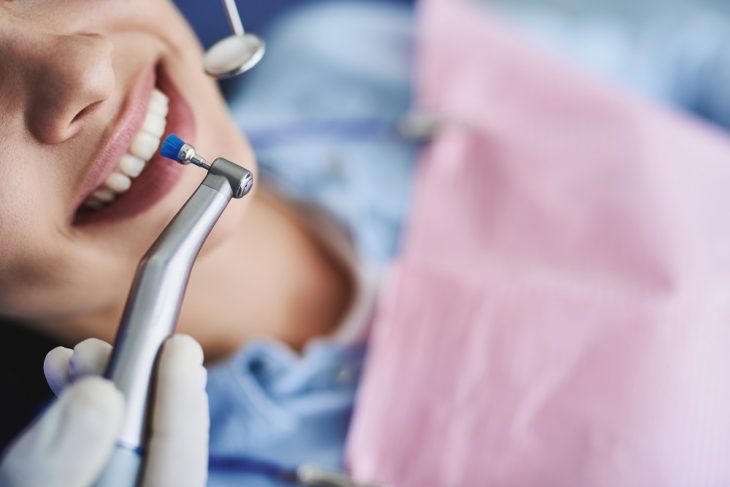What’s Involved in A Dental Clean Appointment? The 5 Main Steps
As dentists, we get questions from patients daily, asking how they can better care for their teeth at home. Although you can improve your oral hygiene in the comfort of your home, you may need additional help and care to keep your teeth healthy throughout your lifetime.
A professional dental cleaning can help ensure your oral hygiene is top-level and clean any areas you miss with your regular at-home brushing.
Please keep reading to learn about dental cleaning appointments, why you need them, and what to expect when you book your first appointment.
What Is Dental Cleaning, And Why Do You Need It?
Dental cleaning involves using professional tools and equipment for a thorough cleaning. When you brush your teeth at home, you may notice that some spots in your mouth are tricky to reach with your toothbrush. A dentist has the tools and equipment to look inside your mouth and reach all those pesky areas you can’t.
Additionally, when bacteria build up in the mouth, this can develop tartar and plaque buildup. It’s impossible to get rid of this by yourself with your brushing routine, and it could lead to tooth decay.
By visiting your dentist for a regular clean, you can ensure your entire mouth is clean and rid your teeth of that plaque and tartar that has built up over time.
What’s Involved In A Dental Clean?
Ready to book your first dental cleaning appointment? Here’s what to expect!
Step One: Dental Examination
This step is essential if you haven’t visited the dentist for a regular checkup in a while. Your dentist will check over your teeth, assessing your oral health and where you can make improvements to your oral hygiene practices.
If your dentist detects a potential issue with your teeth, this process might involve your dentist performing an X-ray to determine the severity of the problem.
Step Two: Scaling The Teeth
Once your dentist has assessed the health of your teeth, they will begin the cleaning process by scaling the teeth. During this process, they will use a scaling tool to scrape any tartar and plaque attached to your teeth gently.
Don’t try this step at home, though! You could risk damaging your enamel and compromising the protective barrier of your teeth.
Step Three: Polishing The Teeth
Once your dentist has finished scaling your teeth, they will use abrasive toothpaste to polish them. The dentist will remove any excess tartar and plaque left over from the scaling process during the polishing step. Additionally, they will even out any indentations or irregularities in the tooth’s surface, ensuring the consistency is smooth, shiny, and polished.
Although it is safe to use infrequently, abrasive toothpaste can damage the enamel when used regularly. You shouldn’t perform this process at home or have a dental cleaning more than the recommended amount.
Step Four: Flossing
Flossing is an integral part of any oral hygiene routine. It rids the teeth of any bacteria sitting in those hard-to-reach areas between the teeth.
Once they have finished polishing your teeth, your dentist will thoroughly floss them, ensuring every nook and cranny of your mouth is clean and bacteria-free.
Step Five: Fluoride Rinse
In the final stage of the dental cleaning process, your dental practitioner will provide a dental rinse to rid your mouth of the excess toothpaste, plaque, tartar, and residue left over from the cleaning process.
The fluoride in this rinse will stay on the teeth following the cleaning, helping to strengthen and lighten the teeth.
How Often Should You Have A Dental Cleaning?
You should have a dental cleaning every six months or twice a year. Since the methods used in dental cleaning can be abrasive when performed regularly, exceeding this amount could cause damage to your enamel, and cavities could develop.
If you don’t have your teeth cleaned at the dentist, your home brushing routine may not be enough to keep your teeth healthy. Since keeping your natural teeth in good condition is the ideal outcome, it’s in your best interest to invest in dental cleaning from your local Maroubra dentist.
Are There Any Teeth That Won’t Benefit From A Dental Cleaning?
Unfortunately, some teeth are too far gone to be eligible for dental cleaning. Typically, these teeth will need replacing. If the teeth are infected, decayed, or missing, they will not qualify for dental cleaning.
Instead, your dentist will list recommended procedures to restore your teeth to their natural state using implants, crowns, or dentures. With these additions, you can have your teeth professionally cleaned. You need to take the best care of your remaining natural teeth, avoiding the cost and complications of compromising the health of your natural teeth.
Is Dental Cleaning Painful?
Dental cleaning is not painful – although you may need to sit for long periods without being able to swallow. Your dentist will advise you to spit to rid your mouth of any liquid and residue from the cleaning process.
You should immediately let your dentist know if you experience any sensitivity, pain, or discomfort during cleaning.
Summary
Dental cleaning is a worthy investment if you want to preserve your natural teeth and avoid the cost of replacements, crowns, and other dental procedures. A dental cleaning is a straightforward appointment, and you’ll leave feeling refreshed and clean! Reach out to our friendly team at Maroubra dental clinic to book a dental cleaning appointment today.
Read More:

